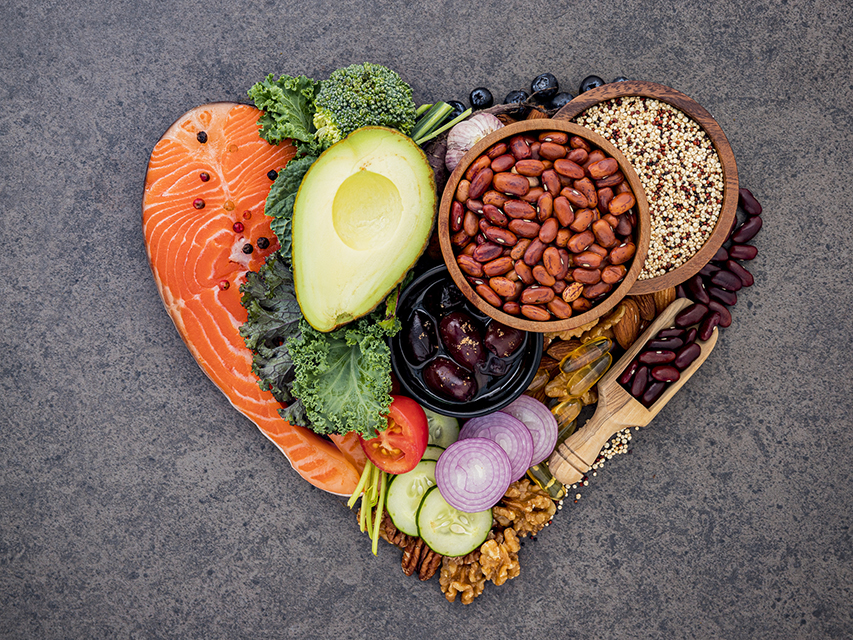The foods we consume have a profound impact on our overall health and well-being, from our energy levels and mood to our physical appearance and risk of chronic diseases. By incorporating nutrient-dense, wholesome foods into your diet, you can transform your life and experience a myriad of health benefits. In this blog post, we will discuss the power of a healthy diet and highlight some nutritious foods that can help improve your health and well-being.
The Importance of a Healthy Diet
A balanced and nutritious diet is essential for maintaining optimal health and preventing various health issues. Some key benefits of a healthy diet include:
- Weight Management: Consuming a diet rich in whole, unprocessed foods can help you maintain a healthy weight by providing essential nutrients without excess calories.
- Improved Mood and Mental Health: Certain nutrients, such as omega-3 fatty acids, B-vitamins, and antioxidants, have been linked to improved mood and mental health.
- Reduced Risk of Chronic Diseases: A healthy diet can help lower the risk of developing chronic diseases like heart disease, diabetes, and certain types of cancer.
- Increased Energy Levels: Nutrient-dense foods provide sustained energy throughout the day, helping you feel more alert and productive.
- Better Sleep: Eating a balanced diet can promote better sleep by regulating hormones and neurotransmitters responsible for sleep-wake cycles.
Nutritious Foods to Include in Your Diet
To harness the power of a healthy diet, consider incorporating the following nutritious foods into your daily meals:
1. Leafy Greens
Leafy greens like spinach, kale, and Swiss chard are packed with essential nutrients like vitamins A, C, and K, folate, iron, and calcium. They also contain antioxidants and fiber, which can help reduce inflammation, support digestion, and lower the risk of chronic diseases.
2. Berries
Berries, such as blueberries, strawberries, raspberries, and blackberries, are rich in antioxidants, fiber, and vitamin C. These nutrients can help protect against oxidative stress, support a healthy immune system, and promote heart health.
3. Fatty Fish
Fatty fish like salmon, mackerel, sardines, and trout are excellent sources of omega-3 fatty acids, which have been linked to improved heart health, reduced inflammation, and better brain function. Aim to consume at least two servings of fatty fish per week.
4. Nuts and Seeds
Nuts and seeds, including almonds, walnuts, chia seeds, and flaxseeds, are nutrient powerhouses, providing healthy fats, protein, fiber, vitamins, and minerals. They can help lower cholesterol levels, reduce inflammation, and support healthy brain function.
5. Whole Grains
Whole grains like brown rice, quinoa, barley, and oats provide complex carbohydrates, fiber, vitamins, and minerals, which can help regulate blood sugar levels, support digestive health, and reduce the risk of heart disease.
6. Legumes
Legumes, such as beans, lentils, and chickpeas, are an excellent source of plant-based protein, fiber, and essential nutrients like iron, magnesium, and potassium. They can help lower cholesterol, support heart health, and promote a healthy weight.
7. Colorful Vegetables
Incorporating a variety of colorful vegetables, like bell peppers, carrots, beets, and sweet potatoes, ensures you consume a wide range of nutrients, including vitamins, minerals, and antioxidants. These vegetables can help support a healthy immune system, improve digestion, and reduce the risk of chronic diseases.
Tips for Building a Healthy Diet
To create a balanced and nutritious diet, consider the following tips:
- Focus on Whole, Unprocessed Foods: Prioritize whole, unprocessed foods over processed and packaged products, which often contain added sugars, unhealthy fats, and artificial ingredients.
- Eat a Variety of Foods: Aim to consume a wide range of fruits, vegetables, whole grains, lean proteins, and healthy fats to ensure you receive all essential nutrients.
- Practice Portion Control: Be mindful of portion sizes to avoid overeating, especially when consuming calorie-dense foods like nuts and seeds.
- Stay Hydrated: Drinking adequate water is crucial for overall health, as it helps support digestion, nutrient absorption, and metabolism.
Conclusion
The power of a healthy diet cannot be overstated. By incorporating nutrient-dense, wholesome foods into your daily meals, you can experience improved physical and mental health, increased energy levels, and a reduced risk of chronic diseases. Remember, small changes to your diet can have a significant impact on your overall well-being, so start today and embrace the transformative power of a healthy diet.
